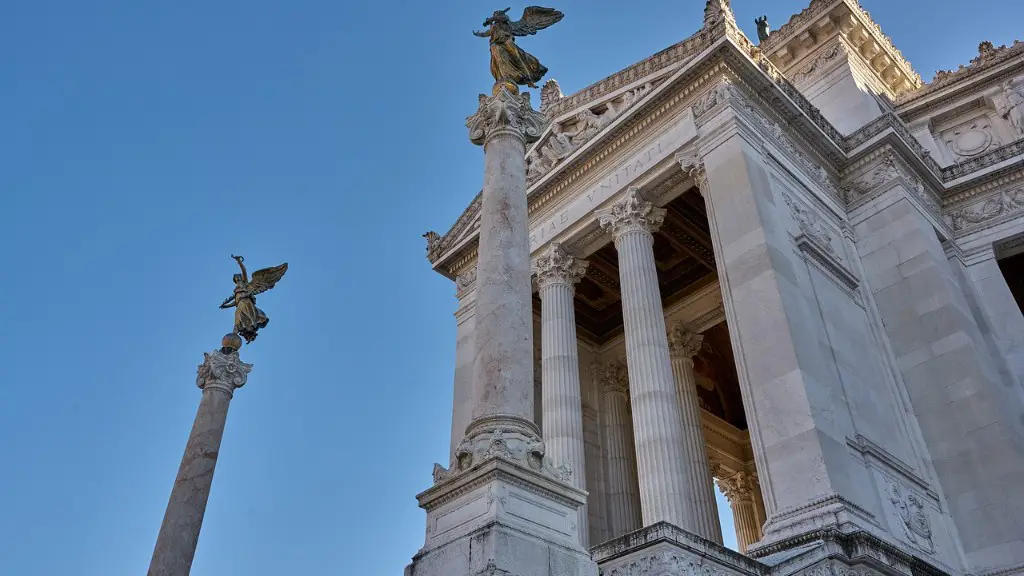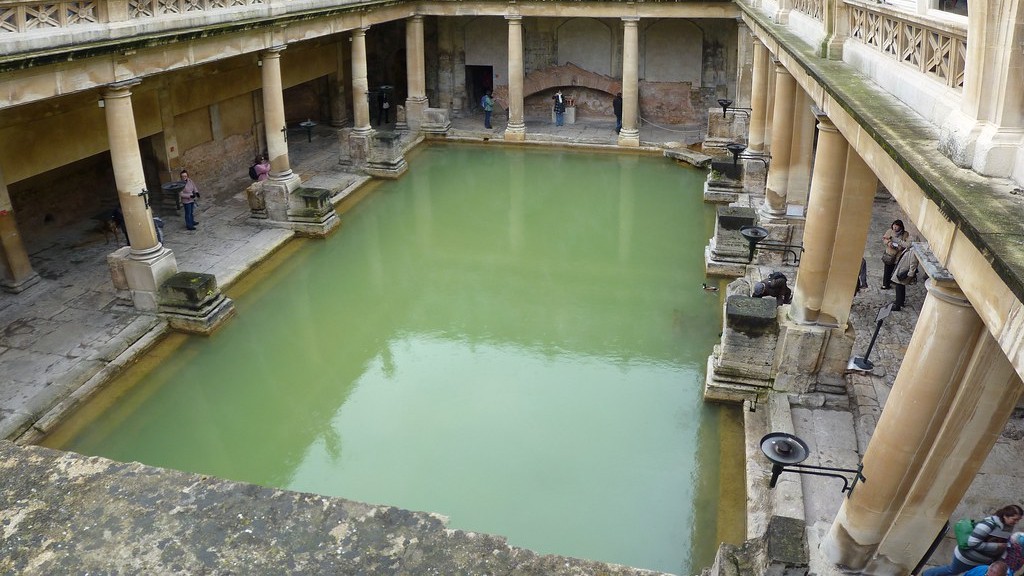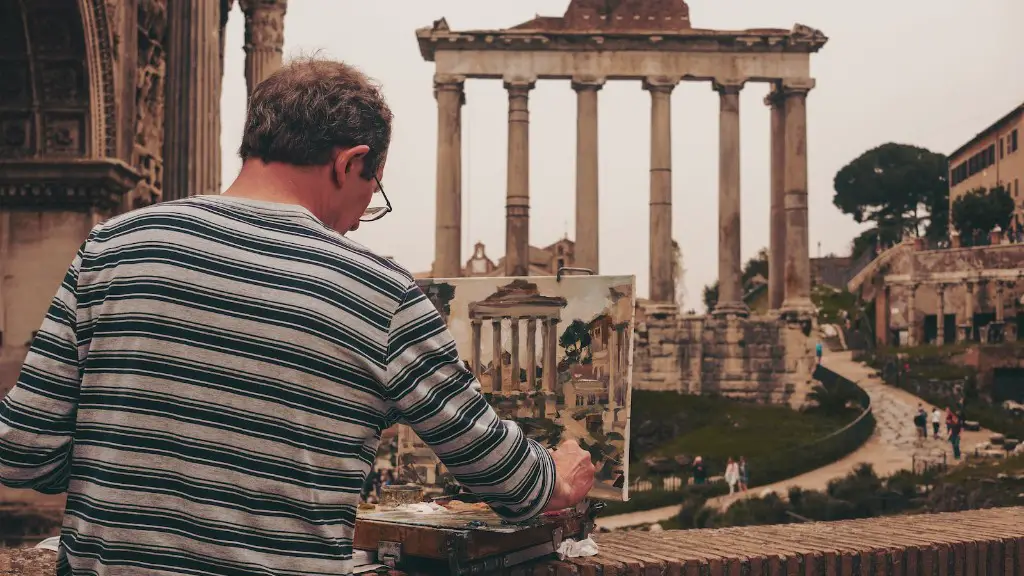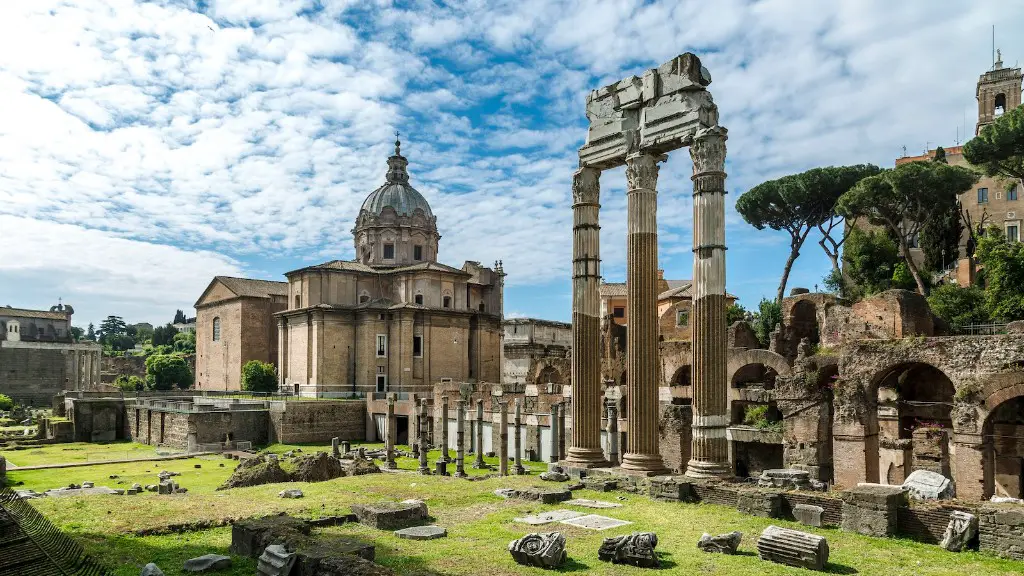Overview
The Ancient Romans were a polytheistic people, and their religion was huge part of their daily lives. Throughout the Roman Empire, the major gods and goddesses that were worshipped reflected the influences from the many other cultures and civilisations that were encountered. Religion was an important element of Ancient Roman society, and it was something that was both deeply personal and heavily publicised. It was common for households across all levels of society to have a shrine located in their home and to make offerings to their chosen Gods.
The Roman Pantheon
The Roman pantheon included gods such as Jupiter, Juno, and Minerva who were adapted from the Greek pantheon, as well as deities that were unique to the Roman people, like Janus and Quirinus. Worshippers made sacrifices to these gods and goddesses, seeking luck, health and prosperity in their daily lives. Although most individuals were devoted to the worship of these deities, there were some individuals who chose to practice a more personal and private form of devotion.
Religious Observance
The religion of Ancient Rome was extremely public in nature, and it was an essential part of daily life. Public religious rites were led by priests and priestesses, including the Vestal Virgins who served the goddess Vesta, and the Pontiffs who were the highest religious authority of the Roman people and presided over all official ritual. Religious activities were so important, in fact, that it was mandatory for all citizens to attend their local temple and take part in the various ceremonies and festivals that were held throughout the year.
Familial traditions
Ancient Romans also placed great importance on familial traditions when it came to their religious practice. Every family was expected to have its own religious rites, which were believed to keep family members safe and ensure the longevity of the family unit. Families would pray together and make offerings to their personal gods and to the larger pantheon. It was also common for families to make a pilgrimage to the temples of gods or goddesses that they held dear, or to a shrine or temple where a miracle or prophecy may have recently taken place.
Magic and Divination
In addition to their public and familial worship, Ancient Romans were interested in the notion of divine intervention and manipulation. Magic, divination, and sorcery were all openly practiced, though these activities were mostly conducted by specialized individuals. Predicting the future became an increasingly popular pursuit for many citizens and various methods were used, such as reading animal entrails, throwing pieces of wood, and studying the flight of birds.
The Impact on the Future
The religion of Ancient Rome had a profound impact on the Western world, and its influence can still be seen in modern religions today. The notion of divine intervention, gods and goddesses, and religious rituals were all borrowed from Ancient Rome and adapted to suit the modern age. Unfortunately, much of the primary sources of Ancient Roman religion have been lost, due to the destruction of temples and shrines, as well as the misinterpretations of various religious texts.
The Worship of Mithras
In ancient Roman times, the god Mithras was a popular figure. Mithras was a deity of Persian origin and was believed to bring success and fortune to those who worshipped him. He was also associated with the sun, which was an important symbol for the Romans, and he was thought to have a special connection to the emperor. In addition to Mithras, the cults of Isis and Dionysus were also popular amongst the Romans, and these gods were often thought to be protectors of the Empire.
Mystery Cults
In addition to the gods and goddesses of the Roman pantheon, the Romans also practiced mystery cults. These were groups that worshipped gods in secret and were believed to bring the worshippers closer to their gods through rituals and ceremonies. Amongst these cults was the Cult of Diana, which worshipped a goddess that was believed to be connected to the moon and to the afterlife. The Cult of Dionysus was also popular, and this was a cult that focused on music, performing rituals and offering sacrifices to their deity.
Conclusion of Traditional Roman Religion
The traditional Roman religion was full of rituals, gods, and goddesses, and it was something that was deeply ingrained in the everyday lives of the Romans. Although the traditional gods and goddesses have been replaced by more modern figures, the influence that Ancient Rome has had on modern religion is undeniable. By understanding the religion of Ancient Rome, we can gain a better understanding of the foundation of our own belief systems.
The Spread of Christianity
As the Roman Empire expanded, so too did the teachings of Christianity. Despite early attempts to suppress the spread of the Christian faith, it eventually emerged as the dominant belief system of the Roman Empire. Much of the traditional Roman religion was absorbed into Christianity, and certain ceremonies, such as baptism, were adapted from Ancient Roman practices. Christianity eventually became the official religion of the Roman Empire and it remains the largest religion in the world today.
The Decline of Roman Religion
By the 4th century CE, the traditional Roman religion was in decline. The spread of Christianity had led to the collapse of many temples, as pagan worship was persecuted and suppressed. Many of the old gods and goddesses were replaced by Christian figures, and Classical antiquity was becoming increasingly forgotten. By the beginning of the 5th century, the Roman religion had all but disappeared.
Roman Religion Today
Modern-day followers of Roman religion have been attempting to revive the old gods and goddesses in recent years. Groups have been established, and members of such organisations take part in rituals to honour the gods of the Roman pantheon. Although the traditional Roman religion is no longer practised by the general public, its influence can still be seen in modern religious practices, such as the festivals that are celebrated across Europe.
Reception of Ancient Roman Religion
The Ancient Romans were an incredibly open-minded people when it came to their religious beliefs. This allowed them to explore and incorporate beliefs from other cultures, and it meant that they could be flexible in their approach to their religion. As such, the religion of Ancient Rome was highly respected by outsiders and it was viewed as a form of civilization that could be respected and admired.
Relationships between Ancient Romans and their Gods
The relationship between the Ancient Romans and their gods was strong and highly personal. It included not only verbal expressions of faith and devotion, but also material offerings and sacrifices. The worshippers of the gods were secure in their belief that the gods would protect them and help them in difficult times. Additionally, the gods were believed to influence the lives of their worshippers, guiding them in their decisions and providing them with a moral compass.
Interpretations of Ancient Roman Religion
Since the downfall of the Roman Empire and the emergence of Christianity, there have been many interpretations of Ancient Roman religion. Some studies have focused on the historical aspects, such as the gods and goddesses that were worshipped, while others have focused on the more spiritual and introspective elements. As a result, there is a great deal of debate surrounding the interpretation of the religion of Ancient Rome.
Modern Arbitrations of Ancient Roman Religion
Since the decline of Ancient Roman religion, there has been a resurgence in interest in the religion of the past. The Roman gods and goddesses have been referenced in books, movies, video games, and other modern media. This has led to renewed interest in the religion of Ancient Rome, and many experts have attempted to make sense of the ancient texts and develop new interpretations of the beliefs and practices that were so important to Ancient Rome.



